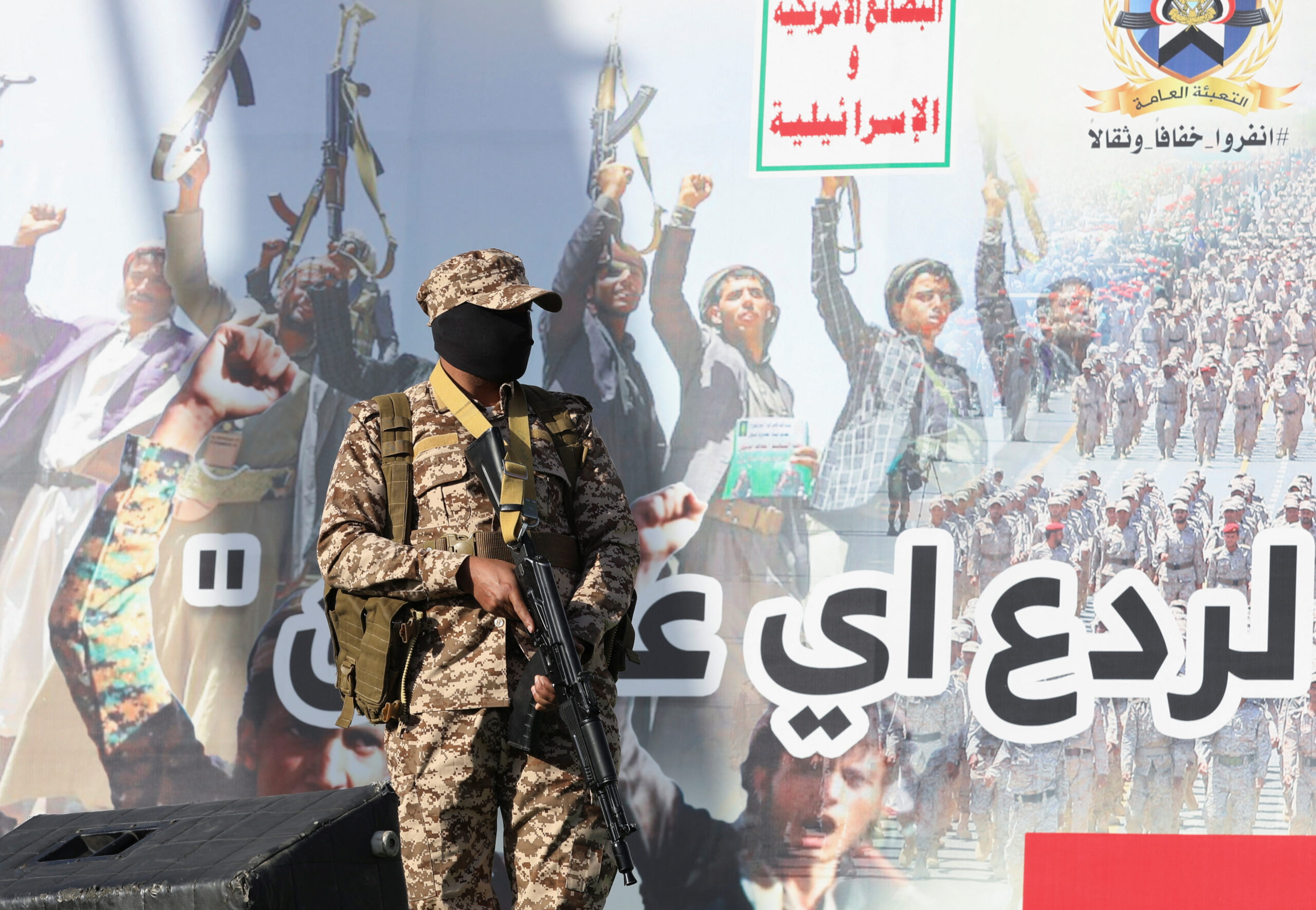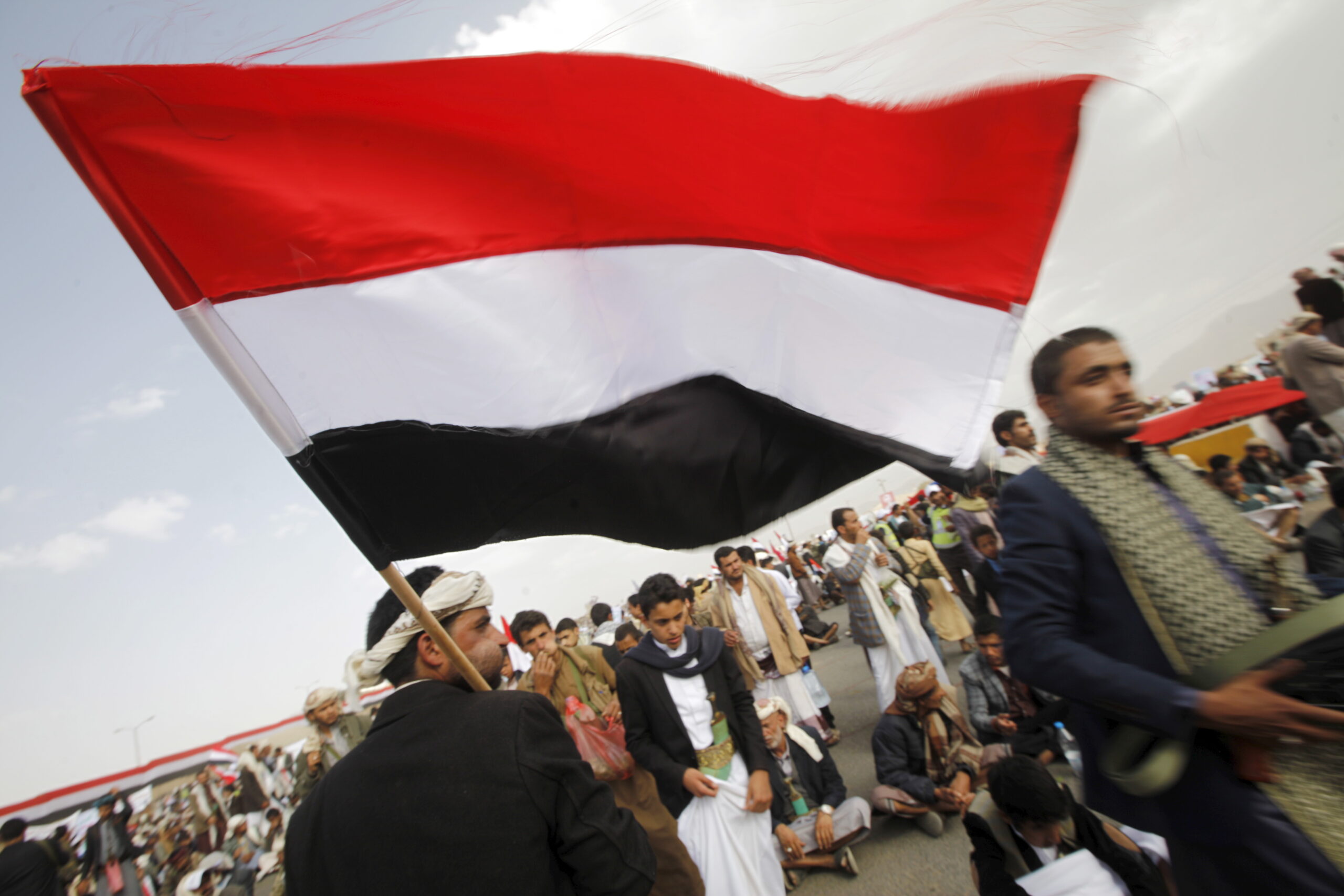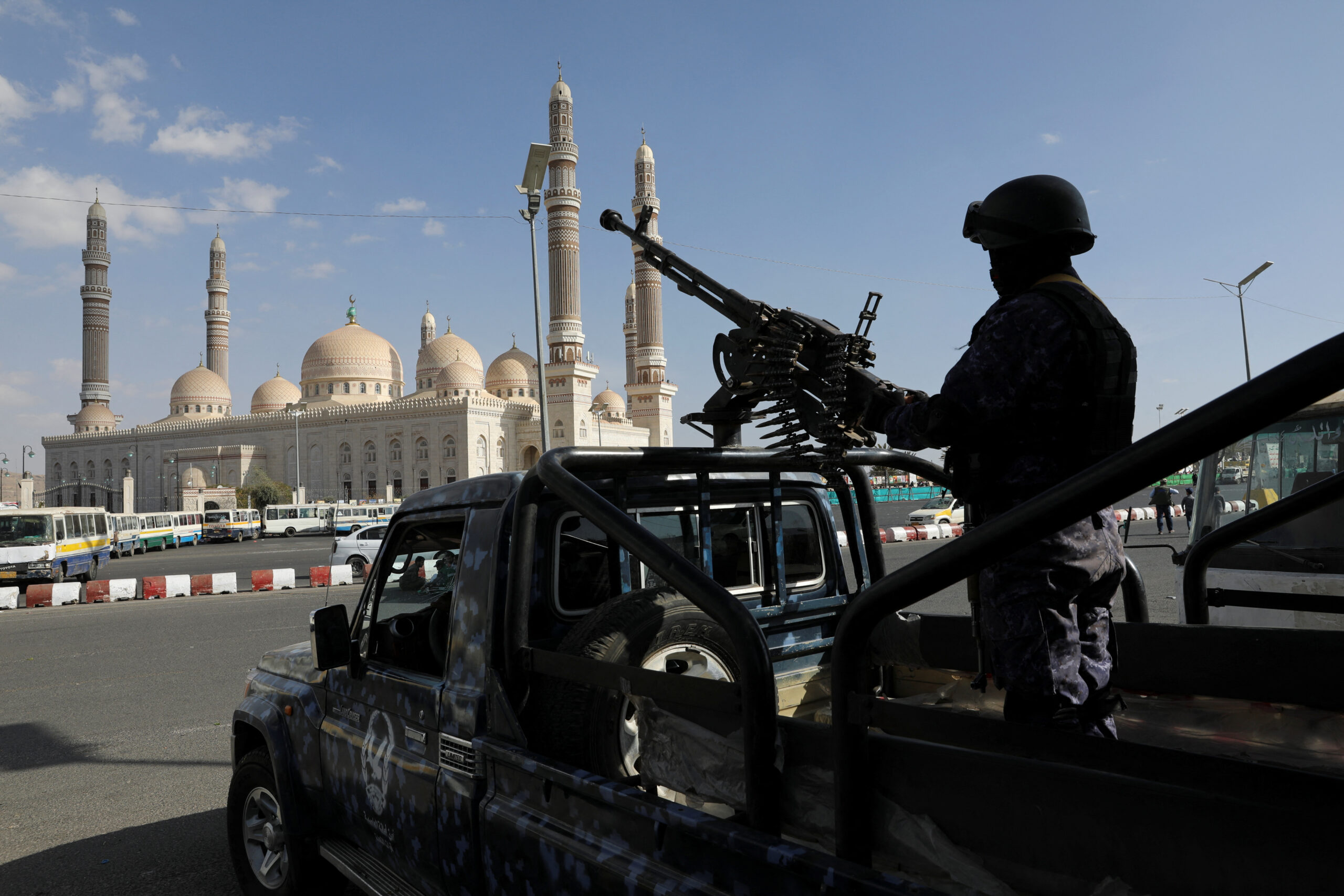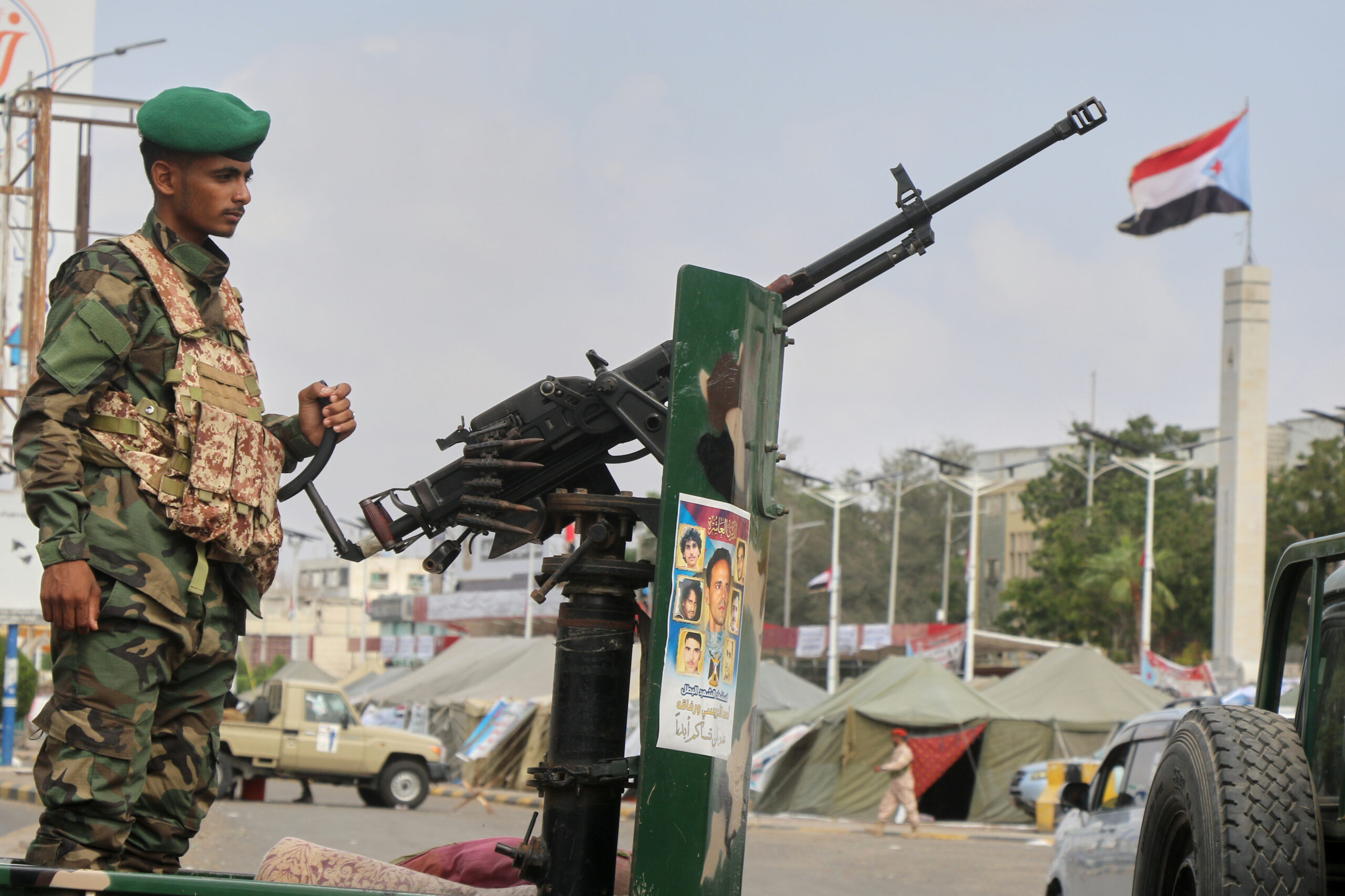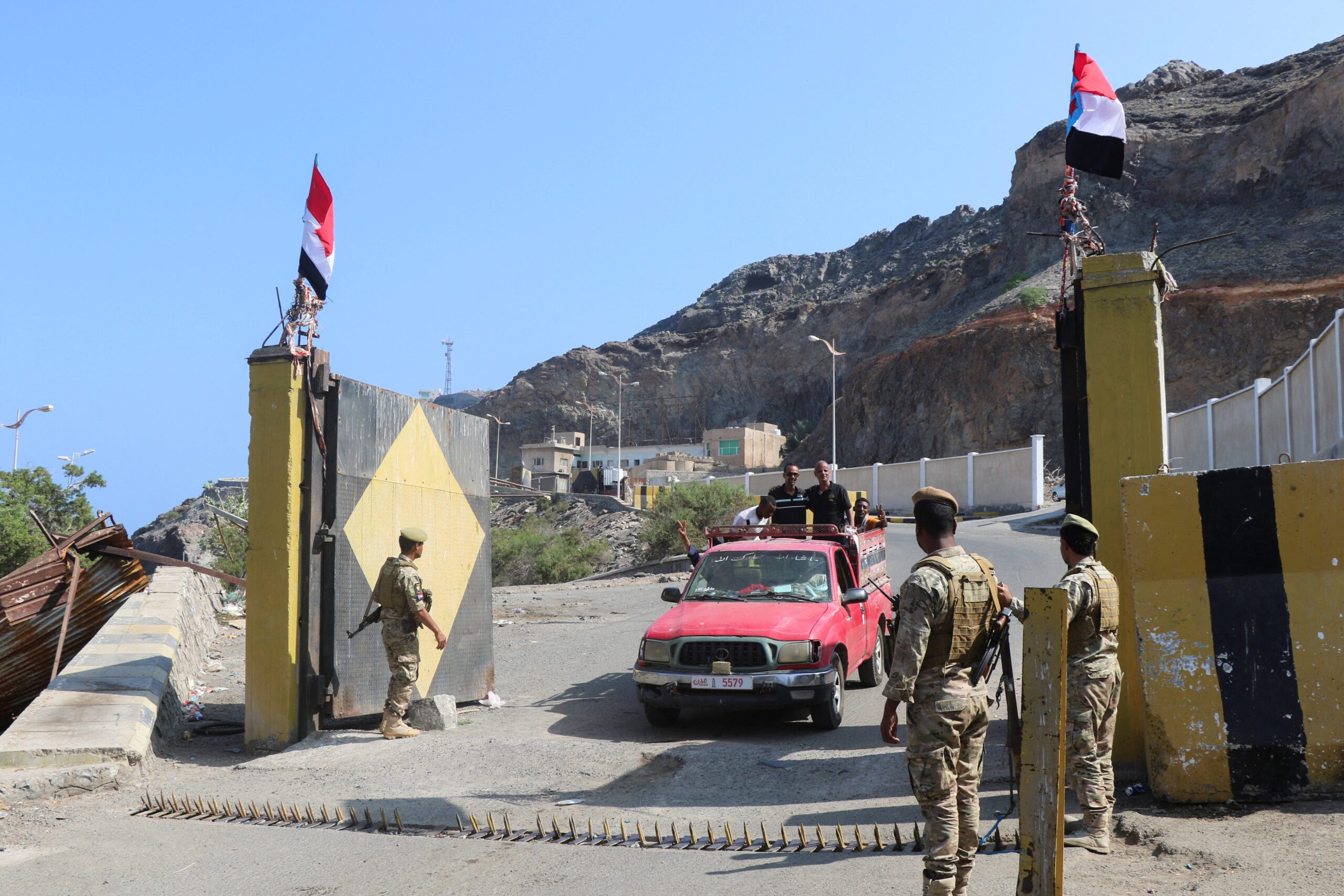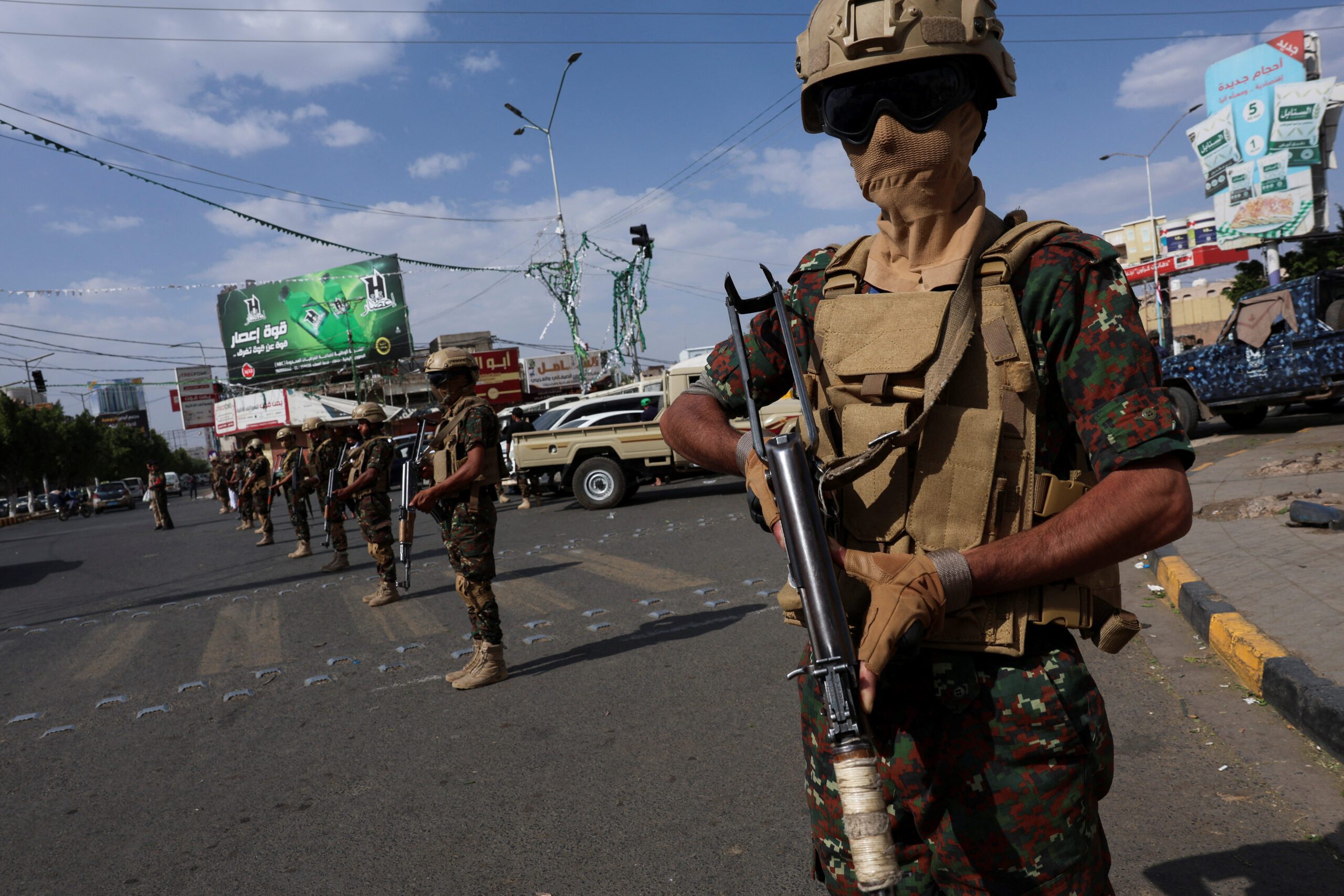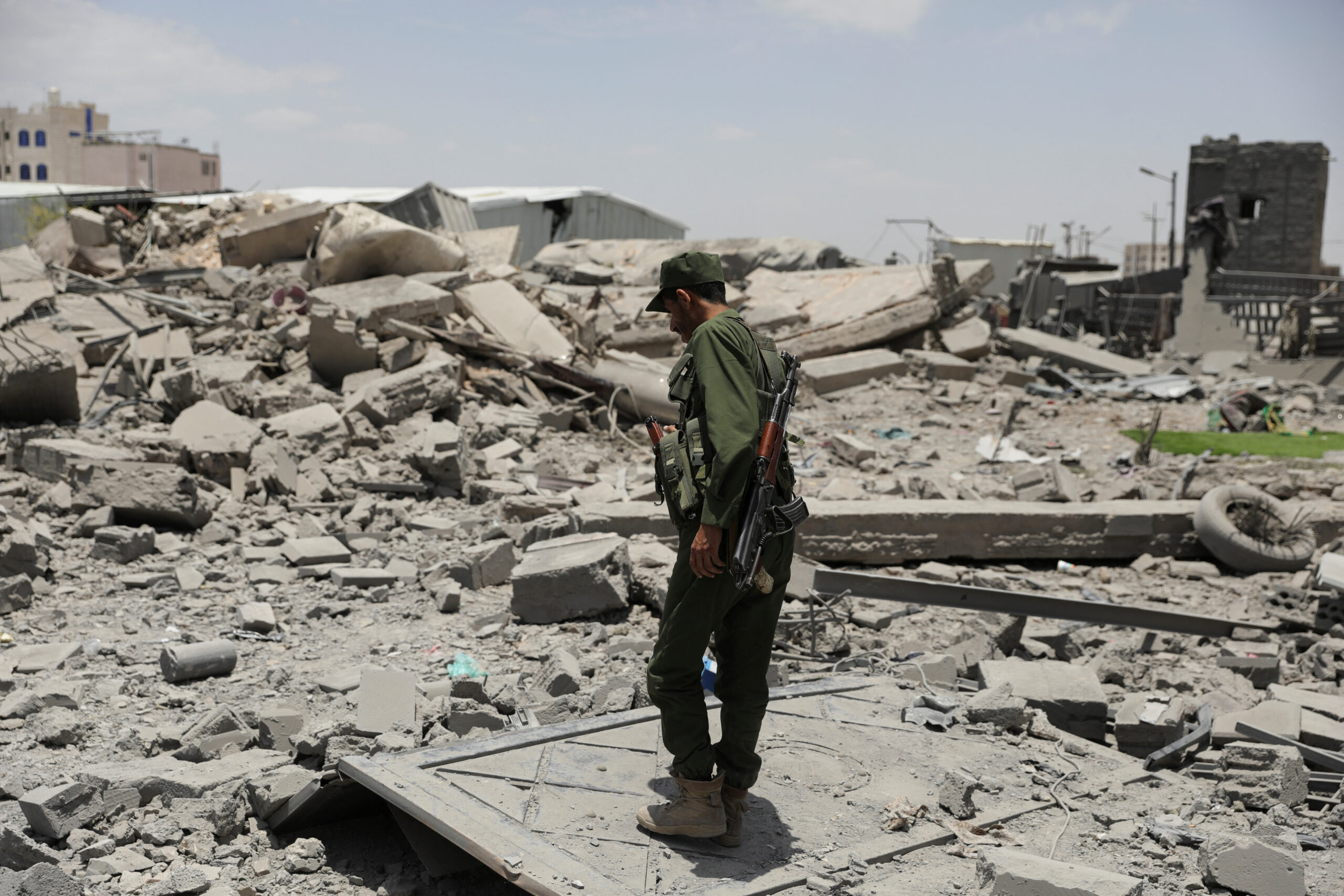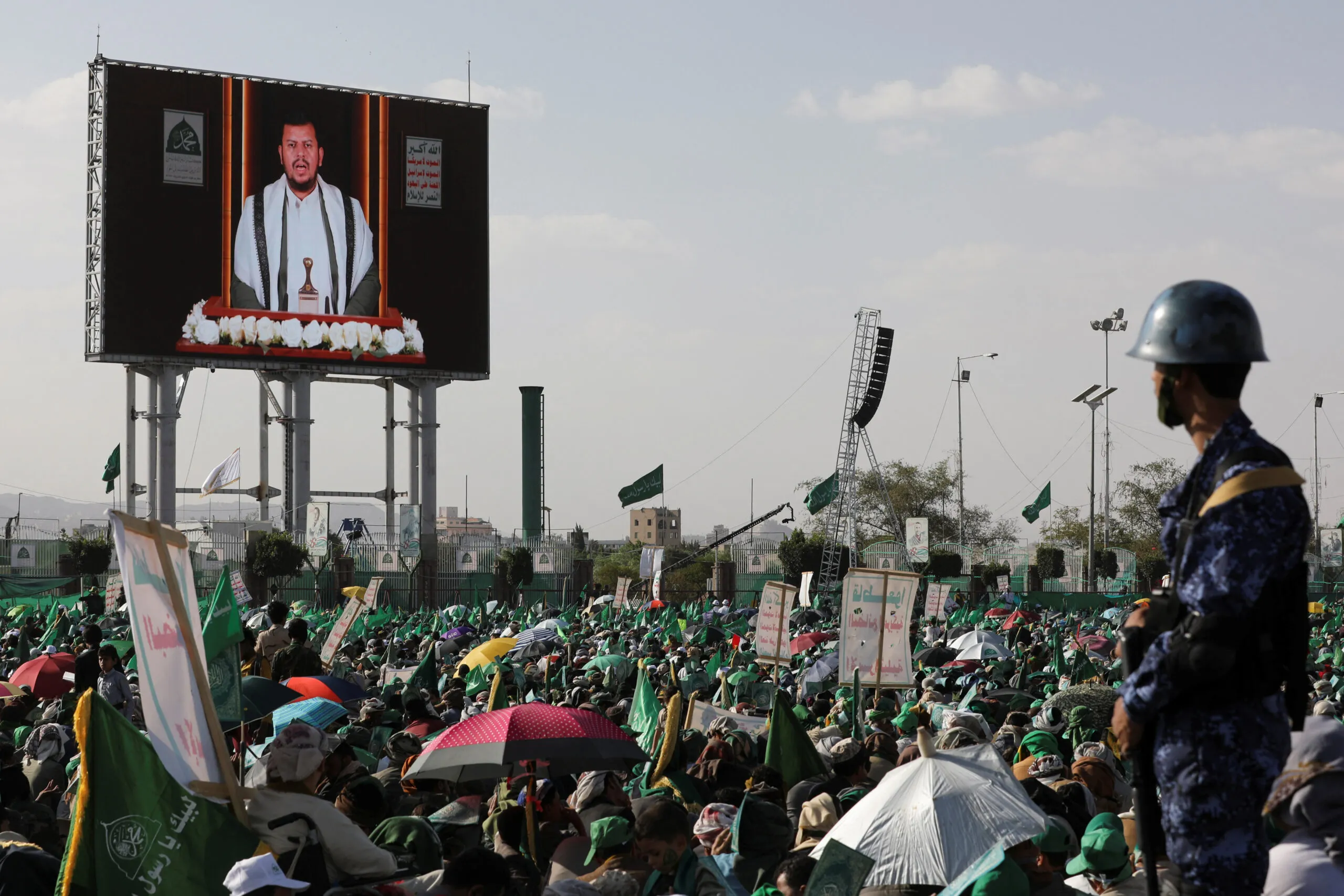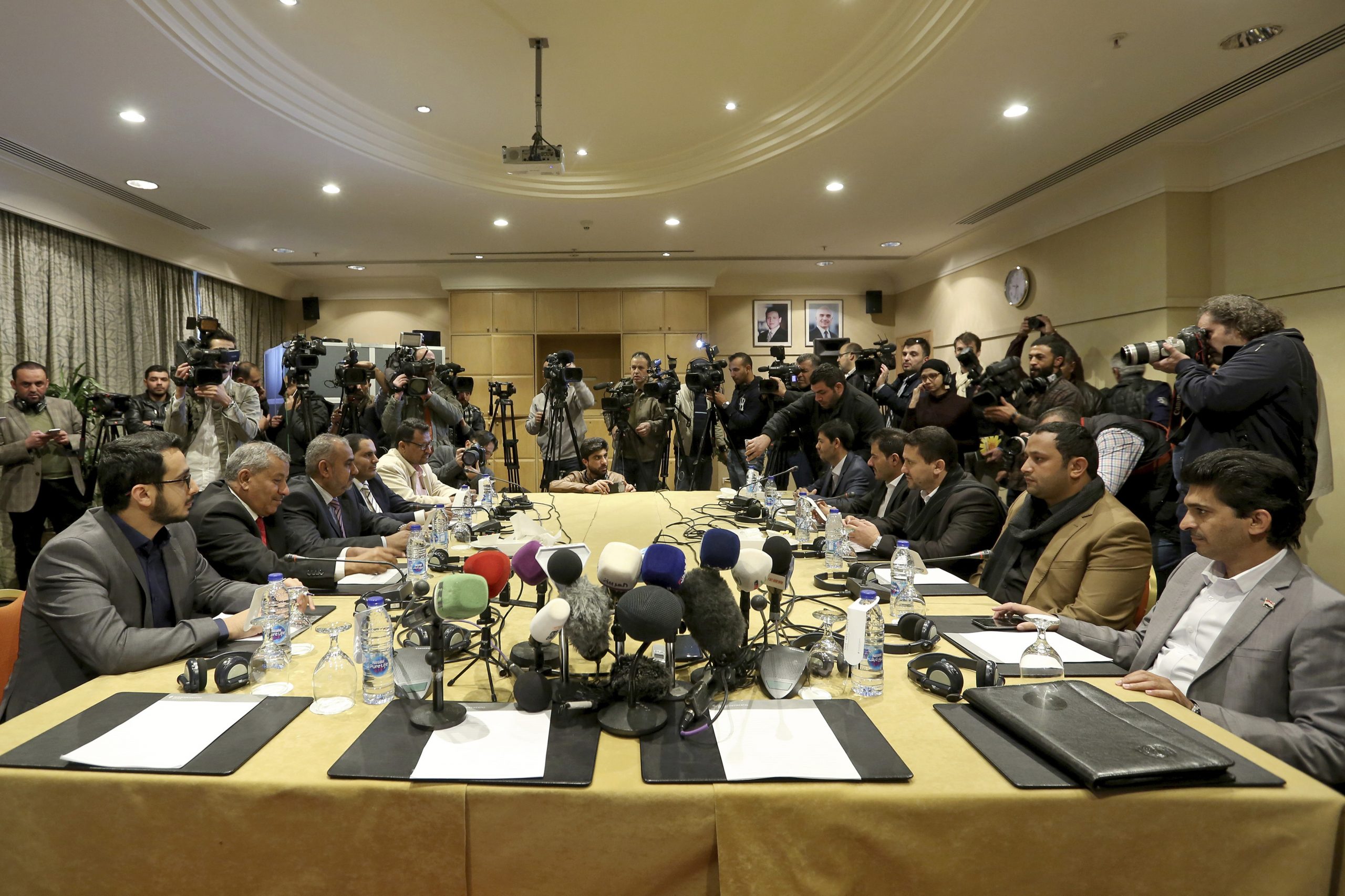The Coming War in Yemen
Trump’s executive order redesignating the Houthis a foreign terrorist organization threatens direct military action against the Houthis, raising the possibility that the United States could get sucked into another long-term conflict in the Middle East.
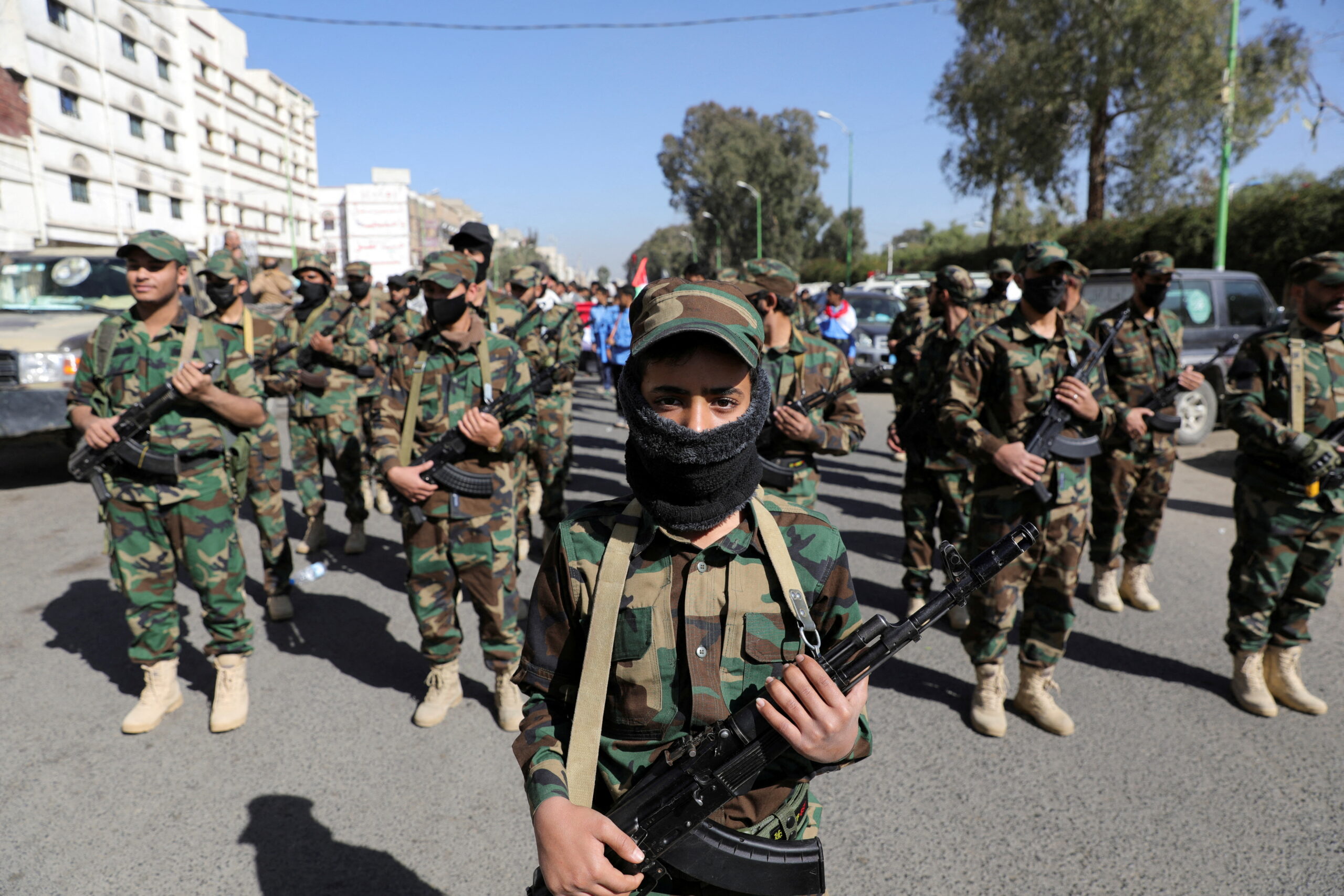
On January 23, President Donald J. Trump’s second term picked up exactly where his first term left off, redesignating the Houthis a foreign terrorist organization. The executive order seemed to threaten an expanded war in Yemen, stating “it is now the policy of the United States to cooperate with its regional partners to eliminate the Houthis’ capabilities and operations, deprive them of resources, and thereby end their attacks on U.S. personnel and civilians, U.S. partners, and maritime shipping in the Red Sea.”
Trump’s decision follows the announced cease-fire in Gaza and a January 19 Houthi statement pledging to cease attacks on commercial shipping in the Red Sea as long as the cease-fire holds. The Houthis subsequently released the crew of the Galaxy Leader, a cargo ship they seized more than a year ago.
In many ways, Trump’s executive order is an attempt to deny the Houthis victory in the Red Sea. For more than a year, the group targeted commercial ships and U.S. naval vessels. The administration of former President Joseph R. Biden Jr. attempted a defend, deter, and degrade strategy that did nothing to either deter or degrade the Houthis. Indeed, in recent weeks, the Houthis expanded their target list, firing missiles into Israel, which sparked a number of Israeli counter strikes.
Unlike Hamas and Hezbollah, two other Iranian-backed militias that have been significantly downgraded since October 2023, the Houthis have suffered relatively few losses over the past 15 months. Instead, the group appears to have benefitted in numerous ways from its missile campaign.
Domestically, it shored up support and silenced internal critics by engaging militarily with the United States and Israel, both of which are highly unpopular across the political spectrum in Yemen. The Houthis also benefitted from a “rally-around-the-flag” effect. The more the United States and Israel bombed the Houthis the more popular the group became.
Regionally, the Houthis demonstrated that they were an effective ally of Iran, turning the missile components that Iran smuggled into the country into strikes on Israel. Over time, and if Hamas and Hezbollah are unable to rebound, this may result in increasing amounts of Iranian support to the group. Part of the Houthis’ success, of course, is the result of favorable geography. The group controls much of the Yemeni coastline along the Red Sea and doesn’t share a border with Israel, which makes retaliatory strikes more of a challenge. By taking on both the United States and Israel, the group also put its Arab opponents, such as Saudi Arabia, in a difficult position. Even though Saudi Arabia has been engaged in a war with the Houthis for nearly a decade, the kingdom refused to join the U.S.-led maritime coalition to combat the Houthis, largely because the group was seen to be defending the Palestinians. In the event Saudi Arabia fully withdraws from Yemen, the Houthis will likely move on the oil and gas fields in Marib, which would fully cement their hold on power. The only thing that has prevented this so far is the presence of Saudi air cover in Marib. From Marib, the Houthis would be well positioned to move into Shabwa and from there into Hadramout, effectively destroying any hopes of a non-Houthi state in Yemen’s south.
Internationally, the Houthis were able to deepen their ties with Russia, which was looking for an effective counter to U.S. military support to Ukraine. Should these ties mature into equipment and aid, the Houthis could morph into a more significant military threat. The Houthis also bled U.S. stockpiles by forcing it to fire more than 200 missiles at a cost of well over $500 million dollars. More significant than simply the high cost is the fact that missiles the United States fires in the Middle East can’t be used in the Pacific, and the stockpiles may take years to replenish. Finally, and perhaps most important, the Houthis ended the war on their own terms, allowing themselves to declare victory over both the United States and Israel.
Trump’s executive order aims to undo this Houthi claimed victory in two ways. First, and most obvious, the order threatens direct military action against the Houthis, raising the possibility that the United States could get sucked into another long-term conflict in the Middle East. This concern is largely why the Biden administration took a cautious approach to combating the Houthis.
Second, Trump instructed the U.S. Agency for International Development to “end its relationship with entities that have made payments to the Houthis, or which have opposed international efforts to counter the Houthis while turning a blind eye towards the Houthis’ terrorism and abuses.” Interpreted broadly, this could lead the United States to cut off support for the United Nations in Houthi-controlled areas and pursue sanctions against organizations and entities that are providing aid in those regions. The Houthis have long used Yemeni civilians as pawns to blackmail the international community, effectively weaponizing humanitarian aid. The international community, including the United States, went along with this because it didn’t want to see an already disastrous humanitarian situation get even worse. The Trump administration is effectively putting political considerations ahead of humanitarian concerns, betting that if food insecurity and starvation become bad enough in Yemen, the Houthis’ hold on power will weaken.
Both aspects of the Trump administration’s order carry significant risks. The United States could easily find itself drawn into a broader war in Yemen in which it is unable to find its way out. Similarly, there is no guarantee that starving people will either be in the position or have the desire to rise up against the Houthis. What is certain, however, is that the Houthis now present a significant challenge to the United States, and the cautious approach has not worked.
The views represented herein are the author's or speaker's own and do not necessarily reflect the views of AGSI, its staff, or its board of directors.

